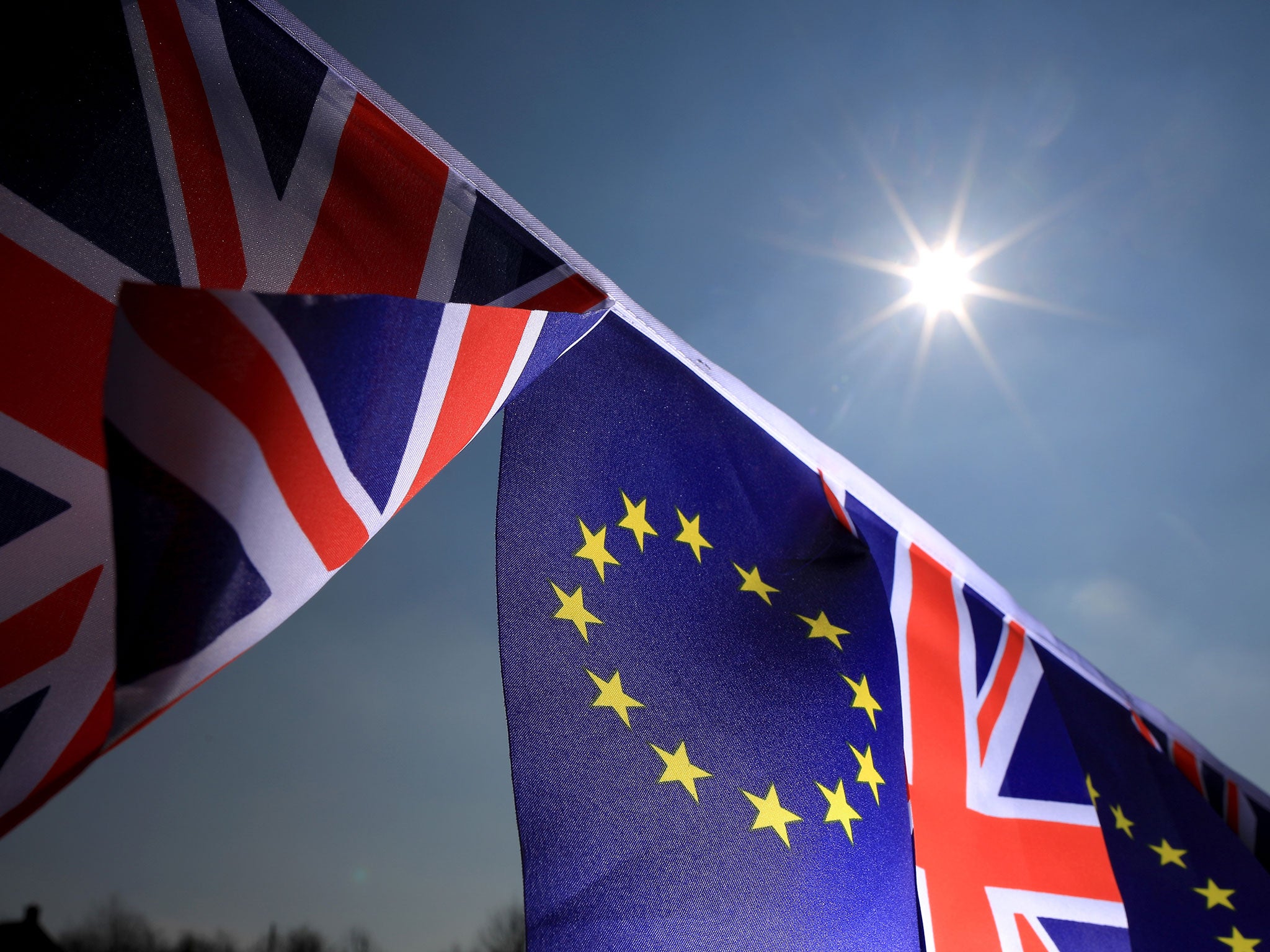EU Referendum: Poll shows Britain split 50/50 - but higher turnout among older voters could tip country into Brexit
The over-65s are the age group most likely to vote - and most likely to vote to leave the EU

Your support helps us to tell the story
From reproductive rights to climate change to Big Tech, The Independent is on the ground when the story is developing. Whether it's investigating the financials of Elon Musk's pro-Trump PAC or producing our latest documentary, 'The A Word', which shines a light on the American women fighting for reproductive rights, we know how important it is to parse out the facts from the messaging.
At such a critical moment in US history, we need reporters on the ground. Your donation allows us to keep sending journalists to speak to both sides of the story.
The Independent is trusted by Americans across the entire political spectrum. And unlike many other quality news outlets, we choose not to lock Americans out of our reporting and analysis with paywalls. We believe quality journalism should be available to everyone, paid for by those who can afford it.
Your support makes all the difference.The British public is split 50/50 on whether to leave the EU but a higher turnout among the Outers could tip the balance in favour of Brexit, according to an opinion poll for The Independent.
Given a straight choice, 50 per cent of people said Britain should leave and 50 per cent that it should remain. But when the findings were weighted to take account of people’s likelihood to vote, the result changed to 51 per cent for Leave and 49 per cent for Remain.
The online survey of 2,000 people by ORB, conducted between Wednesday and Friday (29), suggests that Barack Obama’s intervention in the debate has not been the game-changer the In camp was hoping for. Although 23 per cent said his support for the UK remaining in the EU had made it more likely they would vote to stay in, 66 per cent said it had not. And 45 per cent said they had felt more inclined to vote to leave in the past seven days, while 43 per cent were more inclined to support remaining.
Although Britain is split down the middle on the In/Out question, a majority of people (51 per cent) believe the country will vote to remain in the June referendum, while only 17 per cent think it will vote to quit the EU. One in three people (33 per cent) replied “don’t know” or said the result is too close to call.
The belief that the referendum will produce an In vote may be a mixed blessing for the In campaign. It could breed complacency and lead to some “soft” supporters of EU membership not bothering to vote.
Some allies of David Cameron fear that “differential turnout” could cost him victory on 23 June. According to ORB, 65 per cent of people will definitely vote in the referendum. But that figure masks big variations. Men (69 per cent) are more likely to say they will definitely vote than women (62 per cent). Men are also more hostile towards the EU: only 45 per cent want Britain to stay compared to 55 per cent of women.
Those aged 65 and over are the age group most likely to vote, with 80 per cent saying they definitely will. They are also the most likely group to vote to leave; 60 per cent say Britain should quit the EU and only 40 per cent want to stay.
In contrast, 53 per cent of 25-34 year-olds and 54 per cent of 18-24 year-olds will definitely vote. Among the younger of these two groups, 74 per cent want Britain to remain and only 26 per cent want it to leave. Among 25-34 year-olds, 59 per cent believe Britain should stay and 41 per cent that it should quit.
Similarly, the US President’s intervention had the most impact on younger voters. Some 43 per cent of 18-24 year-olds said it had made them more likely to vote to remain, a view shared by only 17 per cent of those aged 65 and over.
Scotland (56 per cent) has the strongest level of support for EU membership, while Yorkshire and Humberside (42 per cent) and the West Midlands (44 per cent) have the lowest levels.
In a ray of hope for the In camp, more people (46 per cent) agreed that “the risks of leaving the EU outweigh the benefits of Brexit,” than disagreed (35 per cent). That suggests that the economy could prove the decisive factor in ensuring an In vote when waverers make up their mind.
Join our commenting forum
Join thought-provoking conversations, follow other Independent readers and see their replies
Comments